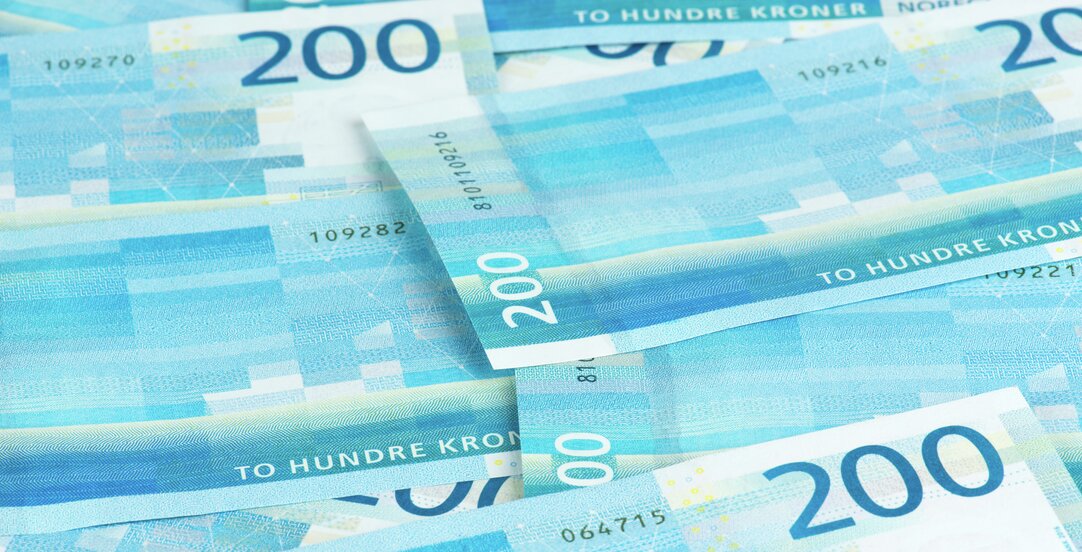Governmental support in the coronavirus situation

The following gives an overview over the most relevant temporary measures put in place by the Norwegian government to mitigate the effects of the ongoing Covid19 situation with respect to the Norwegian industry and commerce. This article is last updated 20 March 2020 12:00 (CET). Please note that changes to the below-outlined measures may be made quickly, and that new measures are continuously being evaluated and put into force.
Further, and briefly stated on a surface level, the government has divided the crisis into three phases: Phase 1 – which is currently ongoing – constitutes the phase in which the government details and implements measures immediately to take place to avoid unnecessary lay-offs and bankruptcies. Phase 2 constitutes the following weeks and months during which the government will continue working on specific measures for industries and companies suffering adverse consequences from the Covid19 situation. The government has stated that it is prepared, and well equipped, for tailoring and implementing new measurements as is required.
Phase 3 will be initiated where the outbreak of Covid19 turns out to be more serious, resulting in more detrimental effects to the economy than initially assumed. In this phase, the government will evaluate whether broader measures should be implemented to ensure sufficient activity in the Norwegian economy.
Overview of governmental support - state measures
The National Insurance Contribution Paid by Employers is Reduced
The national insurance contribution to be paid by employers is reduced with 4 percentage points. For most businesses this results in a reduction of contributions from 14.1% to 10.1%. For the time being, the measure is valid for the next two months. The government is also proposing to postpone the payment deadline for national insurance contributions falling due 15 May 2020 to 15 August 2020.
Temporary Lay-offs: The amount of days employers are obliged to pay salary to their employees in case of temporary lay-offs is reduced from 15 to 2 days. The government takes on the obligation to pay thereafter. Days of grace is also to be repealed, and the requirement relating to reduction of working hours qualifying for the scheme is reduced from 50% to 40%. The limit of income to be covered by the scheme is reduced to 0.75G (approx. NOK 75,000) for income derived over the last 12 months or 2.25G (approx. NOK 225,000) for income derived over the last 36 months. Further, employees on temporary lay-off are entitled to a full salary the first 20 days, limited upwards, however, to 6G (approx. NOK 600,000) in the time period the payment obligation is transferred to the government (i.e. the last 18 days of the 20-day period), after which they are entitled to 80% of the salary up to 3G and 62.4% of the salary between 3G and 6G. Salary beyond 6G is not taken into account. The measures are valid until further notice.
Lay-offs require written notification, normally with a notice period of 14 days (may be sent via email). In the event of "unforeseeable circumstances" the notification may be given with only 2 days' notice. Whether such an unforeseeable event is present must be established in each case and NAV has made the following statement in relation to the Coronavirus: "Lay-offs due to the Coronavirus may be foreseeable or unforeseeable. The grounds for the length of the notice period must be clearly stated in the lay-off notice. NAV does not normally test a notice of shorter period if the situation is covered by the labour act's provisions related to accidents, natural disasters or other unforeseeable events."
During the period of time from the lay-off notice to commencement of the lay-off period the employee is obligated to work and the employer is obligated to pay salary. After the expiration of the notice period of 14 or 2 days the lay-off period will commence. Following this an employer period applies where the employer is obligated to pay lay-off salary. This period will now be reduced from 15 to 2 days.
The employee may be laid off without salary obligations for the employer for a maximum of 26 weeks within an 18 months' period. After the 26 week period, the employer is obligated to pay salary.
Sick Pay: The employer-financed period with respect to sick pay in connection with the Corona pandemic is reduced from 16 to 3 calendar days.
Self-employed persons and freelance persons are also entitled to sick pay as of day 4. The measures are valid until further notice.
Social Benefits: The employer-financed period with respect to social benefits is reduced to 3 calendar days.
Self-employed persons and freelance persons are allotted social benefits as of day 4. The measures are valid until further notice.
Loss Compensation for Income: Self-employed persons and freelance persons losing all or parts of their income are entitled to compensation as of day 17 with approx. 80% of the average income in the last three years (limited upwards to 6G, approx. NOK 600,000). The measure is valid until further notice.
Tax: Postponement of tax and VAT payment deadlines. This only has a short term liquidity effect.
The VAT rate for passenger transport, accommodation, public broadcasting and entry to cinemas, sporting events, amusement parks and activity centres is reduced from 12% to 8%.
Companies ending up with a loss in 2020 are allowed to carry back NOK 30,000,000 to 2019 and 2018 and get a refund for taxes for these two years.
We are expecting further changes that will have a direct effect on the liquidity situation.
Reduction in the Base Rate: The Central Bank of Norway has reduced the base rate with 1.25 percentage points since Friday 13 March 2020 to a record low base rate at 0.25% as of Friday 20 March. The reduction in the base rate is expected to result in a reduction of the interest rates of banks accordingly, leading to cheaper debt financing for businesses.
Extraordinary F-loans from the Central Bank of Norway: As of Thursday 19 March, the Central Bank of Norway will offer additional extraordinary loans to banks operating in the money market (so-called F-loans). The term of the extraordinary loans will be one week up to twelve months. The purpose is to increase liquidity of banks and thus make it easier for banks granting loans to the market.
Governmental Loan Guarantee for New Bank Loans to Small and Medium-sized Businesses: The government is proposing to establish a governmental loan guarantee specifically aimed at new bank loans to small and medium-sized businesses that are suffering or will suffer from liquidity problems due to the extraordinary situation we are in. Initially, it is proposed that the scheme will receive a guarantee framework of NOK 50 billion, but the government is prepared to add more if needed.
According to the proposal the government will guarantee up to 90% of such financing/ loans. The guarantee scheme applies to loans up to NOK 50,000,000 per company with a maturity date not falling later than three years from the date of disbursement. The scheme applies only to new loans granted after the proposal has entered into force and until 1 June 2020.
Reintroduction of the Governmental Bond Fund: The government is proposing to reintroduce the governmental bond fund. The purpose is to contribute to increased liquidity and capital in the bond market, where most of the larger companies are borrowing money.
The proposal is that the fund shall have a limit of up to NOK 50 billion, which may be invested in bond loans issued by Norwegian companies. The fund will be managed by the National insurance fund (Nw: Folketrygdefondet), which is the fund manager of the state with respect to the Government pension fund Norway (Nw: Statens pensjonsfond Norge).
Distributions and Bonuses: There is an ongoing political debate with respect to companies' entitlement to distribute dividends and/ or pay bonuses in the years 2020 and 2021 in case such companies are making use of governmental crisis measures implemented. However, as of today, it seems that the political majority will not introduce such restrictions.
The current situation may also give rise to various issues concerning dividend payments/ distributions from companies. For companies listed on Oslo Stock Exchange, the following provide useful information: Regulations/Information and news.
The Airline Sector: Air passenger fees are set aside from 1 January 2020 to 31 October 2020 and all airport charges are cancelled until 1 June 2020 (private airports to be compensated in this respect). As mentioned under "Tax", the VAT rate for passenger transport is reduced from 12% to 8%.
The government is proposing to establish a governmental loan guarantee of NOK 6 billion for airlines with Norwegian operating permits. The purpose is to assist such companies in gaining access to financing in the market. According to the proposal the government will guarantee up to 90% of such financing/loans. The companies may take advantage of the facilities for a period of three months. The repayment period is maximum two years. To qualify for the loan guarantee, the companies must fulfil certain conditions relating to solidity, currently that they have 8% equity ratio at the end of the last quarterly report prior to the outbreak of Covid19. The airlines SAS and Widerøe fulfil such condition. The airline Norwegian does not fulfil such condition at the moment, but will immediately receive a facility of NOK 300,000,000 (conditioned only on 10% guarantee provided by bank or other financial institution), to be extended up to NOK 3 billion in case of improved solidity (divided into two tranches containing different requirements). Liquidity due to loans provided under the guarantee facilities may not be used for dividend payments or bonuses to key employees.
The scheme is subject to approval from the EFTA Surveillance Authority (ESA).
The political majority has also agreed on ensuring a minimum level of flight offer in Norway as well as implementing measures incurring no or reduced costs for the airlines aimed at bringing back persons located in a country abroad.
Culture, Sports and Charity Work Sector: Loss of income will be compensated within these sectors. NOK 300,000,000 is earmarked for culture and NOK 600,000,000 is earmarked for various charity work activities.



